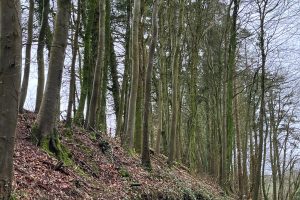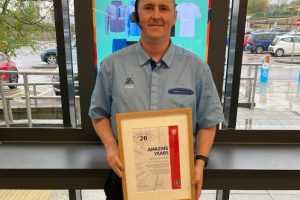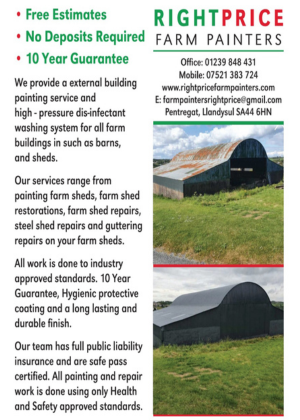PEMBROKESHIRE County Council have issued a number of warnings after several road collisions and accidents take place due to the cold weather.
As temperatures drop below freezing, many schools across Pembrokeshire have been forced to close or partially close to avoid any injuries.
At present, eight schools are closed while four are partially closed. They include:
Closed schools –
- Mary Immaculate School
- Portfield School
- Milford Haven Community Primary School
- St Francis Catholic Primary School
- Neyland Community School
- Coastlands School
- Cosheston VC School
- Monkton Priory Community Primary School – will also be closed tomorrow
Partially closed –
- Henry Tudor School – years 7, 8 and 9 have joined on google classroom, years 10, 11 and 6th form are in school.
- Pembrokeshire Learning Centre – partially closed for KS3 learners
- St Florence Church in Wales VC School – hopes to open at 1, weather permitting
- Lamphey Primary School – reception, year 3 and year 5 are closed.
Milford Haven School remained closed until 11:40am. The GCSE History exam which was expected to take place at 9am was postponed until the school opened.
More information on school closures can be found on the Pembrokeshire Council website https://www.pembrokeshire.gov.uk/school-closures.
PCC have continued to provide updates throughout the day. They have said their gritters are operating primary and secondary routes, and have used approximately 700 tons of salt since Friday evening.
Unfortunately, resources are stretched and teams cannot grit all car parks. Instead, PCC will focus on busy areas and around vulnerable locations such as pavements.
The weather conditions were exacerbated by a rain shower in the early hours of Sunday morning that caused the road surfaces to freeze which made conditions treacherous on smaller roads and estates.
Pembrokeshire County Council have also provided advice for those who need to drive.
- Drive only if your journey is really necessary
- Allow sufficient time – avoid dusk or night driving
- A full tank of fuel is essential – the biggest source of heat if stranded will be the car engine.
- Make sure all lights are working, fluid levels are correct, use a stronger screen wash to prevent the windscreen freezing, make sure all windows are clean, use de-icer and a suitable scraper.
- If forced to abandon the vehicle, leave it in the safest place possible.
- Never leave the vehicle unattended with its engine running. That will nullify its insurance cover if stolen.
- Dress for the conditions. Take a thermos of hot drink or soup and high energy food such as sweets, chocolate and glucose based snacks.
- Have a blanket or sleeping bag and a high visibility coat or vest.
- Have entertainment especially if transporting young children. Take sunglasses to reduce low winter sun glare, mobile phone charger, breakdown service telephone number and inform someone that you are on your journey particularly if driving in a remote area.
If your journey is necessary, please remember the following advice:
- At the wheel apply gentle acceleration, steering and braking – sympathetic gentle driving is the key to travelling safely.
- Pull away in second or third gear. In an automatic select second gear. Some automatics have a winter mode.
- Watch your speed and remember that cyclists and pedestrians will be less visible than other vehicle
- Stopping distances increase up to 10 times in ice and snow.
- Never rev the engine as that only ‘polishes’ snow and ice, If the vehicles start to skid, gently lift-off the throttle and steer into the skid. Try not to brake. Use first gear as a brake.
- Black ice is often in areas shadowed from the sun particularly on roads heading north to south so beware.
- While the vehicle is warm inside it can be freezing outside so monitor the vehicle’s external temperature meter.
- Non-gritted roads – beware of driving in wheel-tracks because compressed snow is more likely to cause a skid than undisturbed snow.
- Dipped headlights are essential to see and be seen. Do not use fog lights unless visibility is less than 100 metres- they dazzle oncoming vehicles and rear fog lights can obscure brake lights.
- Avoid flashing headlights to acknowledge other drivers. It causes dazzle.
Pembrokeshire County Council also recommends that you carry an “emergency kit” for long journeys. They suggest:
- Ice scraper and de-icer.
- Torch.
- Warm clothes and a blanket.
- A pair of boots.
- First aid kit.
- Battery jump leads.
- Shovel.
- Take food and a warm drink in a flask when you are travelling in wintry weather.


















